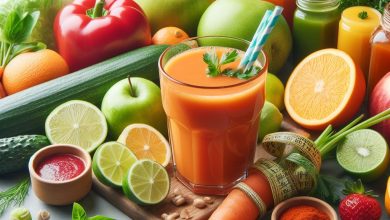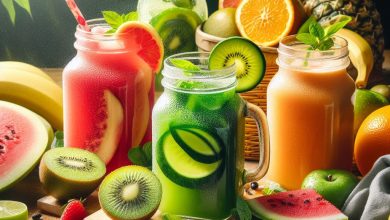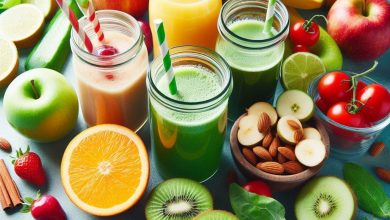The healthiest juice
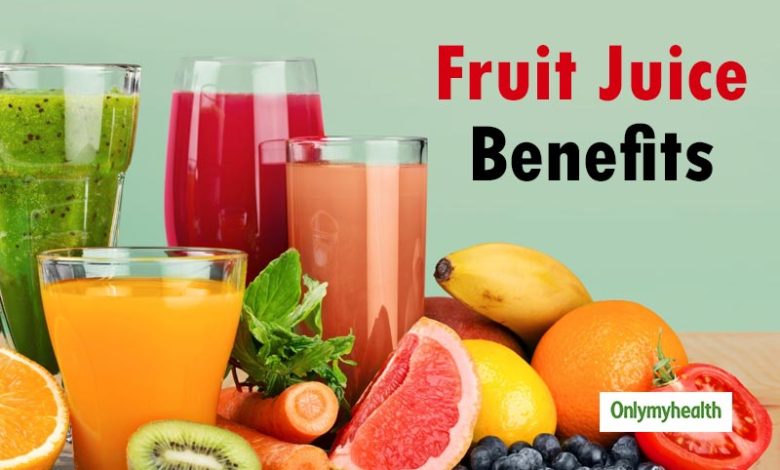
Bright in color, sweet in taste, rich in nutrients – it would seem that drink juices and become healthier day by day. However, the question is: “Which juice is the healthiest?” remains relevant. We are looking for an answer to it.
Juices are rich in natural sugars – fructose, glucose, organic acids and microelements, which are found in fresh fruits, vegetables and berries. Therefore, manufacturers often further enrich juices by adding vitamins and minerals such as B1, B2, iron, calcium, magnesium to some drinks, which increases the nutritional value of juices.
By the way, nutritionists believe that vegetable juices are healthier than fruit juices, since they contain less sugar. Vegetable juices are better than fruit juices in stimulating the digestive system and more actively cleansing the body of toxins, making them a pleasant addition to weight loss diets.
JUICE, DRUG OR NECTAR?
Of the packaged drinks, the healthiest juice is considered to be the one on the package that says “reconstituted” or “directly pressed.” There are no dyes, flavors, preservatives, or flavor enhancers in such drinks. Reconstituted juice is obtained when juice concentrate is diluted with water.
Moreover, exactly as much water is poured as was evaporated from the concentrate. The inscription “directly pressed juice” speaks for itself. Such juices can be stored for no more than 3 months, so they are inconvenient for manufacturers and most often we see reconstituted juices on store floors.
Fruit extracts contain only 15% of fruit extracts, the rest is water and artificial additives – flavorings and preservatives.
JUICES FOR CHILDREN
The question of the optimal timing of introducing juices into the diet of infants still remains open. For many years, pediatricians recommended introducing the baby to them from 3-4 weeks. But numerous studies have shown that 60% of babies do not tolerate such an early encounter with these drinks.
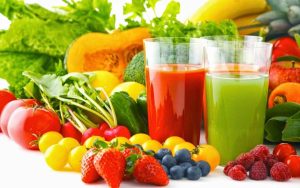
If you rush to introduce juices into your baby’s diet, there is a fairly high risk of an allergic reaction and disruptions in the digestive system – regurgitation, increased bowel movements, bloating, and increased gas formation.
Therefore, juices are introduced into complementary foods from 4 to 6 months. The first portion is 5 ml. Then, gradually increasing, the volume of juice drunk undiluted with water in 2-3 doses per day is brought to 100 ml by the end of the first year of life.
If the child is literally a fan of juice and the age norm is clearly not limited, try diluting the juice with boiled, drinking or still mineral water.
For example, grape juice, which contains a lot of glucose, can increase gas formation in the intestines. Apple juice, due to malic acid, can stimulate the production of hydrochloric acid in the stomach and thus stimulates the appetite. Juices from black currants, gooseberries, pears, blueberries, which contain tannins – tannins, on the contrary, fix the stool to varying degrees.
FRESH JUICES
Freshly squeezed juices (fresh juices) have a pronounced effect, so even adults are recommended to drink no more than 250 ml of this drink daily. If you intend to squeeze the juice yourself, choose the ripest fruits and keep in mind that you need to drink it almost immediately: the vitamins in freshly squeezed juice are quickly destroyed. After 10 minutes, exactly half of the original amount remains.
VEGETABLE JUICES
Carrot juice is good for vision problems. The juice increases appetite, strengthens teeth and the nervous system. Since it is rich in fat-soluble vitamins (for example, provitamin A), it is recommended to add a little cream or vegetable oil to it for better absorption. The juice also contains a lot of iron and copper, which helps stimulate
Beetroot juice contains iron, folic acid, vitamins C, PP, P and group B. Stimulates the formation of erythrocytes (red blood cells), and is rich in iodine. It is better to drink beet juice mixed with carrot juice in a ratio of 1:4, but little by little.
Cucumber juice has a good diuretic effect. Since it contains up to 40% potassium, it improves the functioning of the cardiovascular system. This drink also helps improve memory, increase appetite, and helps maintain skin tone. Please note that its effect is enhanced in combination with blackcurrant, apple, and grapefruit juices.
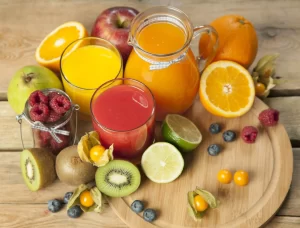
Tomato juice is the lowest in calories – only 230 kcal per liter. But those who want to lose weight appreciate it not only for this! The juice perfectly quenches both thirst and hunger. Very useful for children. It is recommended for use in obesity and diabetes. Pumpkin juice can be drunk on its own or in combination with carrot or apple juice.
FRUIT JUICES
Pineapple juice is rich in bromelain, a substance that promotes rapid fat burning. It is recommended to drink it during a large feast, when you have to eat a lot of meat, because this juice increases the activity of gastric juice.
Grapefruit juice contains naringin, a substance that also helps accelerate fat burning. Very useful for ARVI. But under no circumstances should they take medication. Due to the stimulating effect of juice on the stomach, the body’s reaction to the drug may change and be completely different from what was expected.
Contains a lot of iron, which means it is useful for anemia. Pectin substances, which are also contained in large quantities in this juice, help cleanse the body of toxins.
Due to its high potassium content, apricot juice strengthens the heart and helps remove excess fluid from tissues. It contains a lot of phosphorus and magnesium, which improves memory and increases performance. But due to the high sugar content, this juice is contraindicated for diabetes and excess weight.
Birch sap is neither a fruit nor a vegetable. But this does not affect its usefulness. It has a diuretic, choleretic, laxative effect. Due to its laxative effect, the juice removes toxins from the body.

